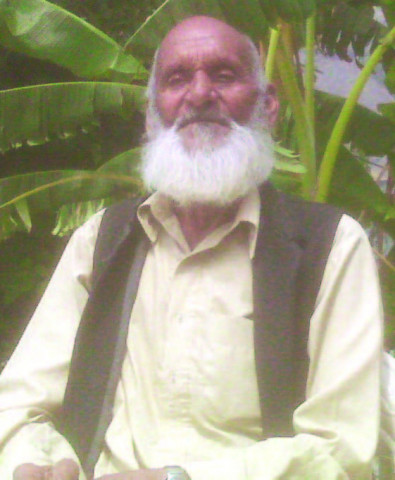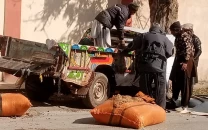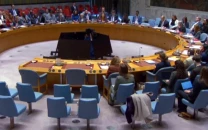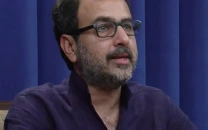A veteran’s tale
Former sepoy narrates the events of a fateful day in the 1940s in Burma, where he was injured during Word War II.

Former sepoy Mirza is narrating the events of a fateful day in the 1940s in Burma, where he was injured during Word War II. The memory of the nightmarish offensive that nearly cost him his life is still fresh in Mirza’s mind, and he recounts his experience in astonishing detail. “Japanese forces were shelling one of the British Indian Army’s advance parties. No one could see anything except dust, flames, smoke, and the bodies of dozens of dead soldiers!” Mirza says.
“The enemies killed all my fellow soldiers, 13 jawans, but I didn’t lose heart. I was one of the lucky ones — I came out alive.” Mirza was hit by shrapnel during the battle, which injured his right leg, arm and forehead. The scars of his wounds are still visible on his wrinkled face. “I was taken to the hospital for treatment, where I stayed for three weeks,” he adds. “But after that I went back to the front lines and stayed there till the end of the war.”
Mirza is one of the few veterans of World War II alive today.
He enrolled in the British-led Indian Army in 1941, and continued to serve the Queen, and then Pakistan, until 1957. Along with other Indians, Mirza comprised the sizable force that helped the Allies battle the Axis forces in areas like Italy, North Africa, Syria and Burma between 1939 and 1945.
Today, Mirza lives with two sons and a daughter in Ghooni, a sub-village of union council Nagri Tootial. Mirza is relatively famous — everyone in Nagri Tootial has either heard of him or met him. “I usually go to the market every morning and come back in the evening,” Mirza explains. “But I didn’t go today because I was feeling cold.”
Mirza is the eldest of three brothers, and claims to be at least 105 years old. His 85-year-old brother Nazar Mohammad who lives nearby says Mirza is about 20 years older than him. Amazingly, Mirza still displays a spark of the bravado that helped him wrangle his way into the Indian army despite being over-age.
He was 24 when he attempted to join the army, and was rejected at first for being too old. “However, due to the intercession of an important personality in our village, Khan Bahadur Abdul Rehman Khan, I was considered again and selected,” Mirza says.
Soon after he joined the army, Mirza’s regiment was moved to the front lines and thrust into the thick of the action. Mirza thoroughly enjoyed his time with the armed forces despite the danger. He developed close relationships with his fellow soldiers and officers, many of whom he can easily recall today. “I can recall the names of two gora officers. One was Smith and the other was called Gipp. Both were very good, cooperative officers,” he adds. “We travelled a lot inside and outside Hindustan with the army and enjoyed ourselves a lot.”
Mirza participated in the Burma campaign, the treacherous war fought between Britain, China and the US and Japan. He is keen to display the three medals he was awarded by the British government after the campaign, during which he suffered his injuries.
One of Mirza’s few regrets is that his name was not included in a list of veterans of World War II prepared by the British Government a few years ago. “I fought bravely and was awarded medals but the goras have not recognised my services,” he says sadly. “At this age I can’t beg for a reward,” he adds, “but if the British want to do something for me, they can provide clean drinking water and a hospital to my village. We don’t have these facilities here.” His only other grievance is that all his friends from his army days have passed away and he has no one to share his memories with.
But all in all Mirza has a sunny approach to life, which he takes one day at a time. “I don’t sleep, talk, or eat much, and I never interfere in the affairs of others. These are the secrets of my perfect health,” he confides. “The only bad habit I have is smoking. But believe me I have never ever borrowed a cigarette from anybody in all my life.”
Mirza seems to love the little pleasures in life, and may have been a bit of a dandy in his youth. He still proudly wears a wristwatch made by the West End Watch Company that he bought in Calcutta. He insists the watch has never needed repairs. “At that time everything was original. Today nothing is original. Fraud can be seen everywhere,” he says knowledgeably.
Ever vigilant, the former soldier still keeps a close eye on his motherland’s defence — via radio. He believes that most of Pakistan and Afghanistan’s current problems have been caused by the US. Talking about the situation in Afghanistan, Mirza says: “Believe me, they [the US] cannot win against the tribal leaders... they are hard to beat. We have witnessed that in days of the British, when despite heavy arms and ammunition we could not defeat them. Negotiations for peace are the only answer.”
However, distant as he is from his combative past, Mirza knows where his loyalties lie. “Whatever the army is doing is in the best interest of Pakistan!” he says.
Published in The Express Tribune, October 9th, 2010.


















COMMENTS
Comments are moderated and generally will be posted if they are on-topic and not abusive.
For more information, please see our Comments FAQ